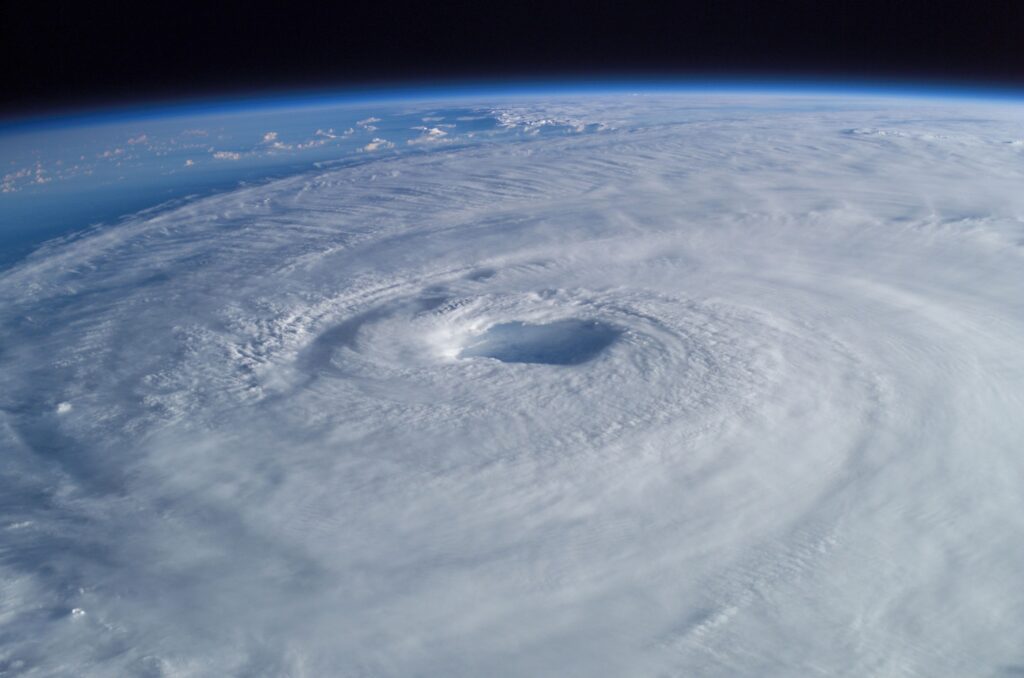Climate Change Weekly #61
When Hurricane Isaac made landfall in southern Louisiana, the storm provided a rare break in one of the longest periods of hurricane inactivity in U.S. history. Seeking to deflect attention away from this comforting trend, global warming alarmists attempted a high-profile head fake, making public statements that the decline in recent hurricane activity masked an increase in strong, damaging hurricanes.
“The hurricanes that really matter, that cause damage, are increasing,” John Abraham, a mechanical engineer on the staff of little-known University of St. Thomas in St. Paul, Minnesota, told Discovery News.
Let’s go straight to the data to find out if major hurricanes are indeed increasing.
The National Hurricane Center (NHC) provides information on major U.S. hurricanes during the past 100-plus years. According to the NHC, 70 major hurricanes struck the United States in the 100 years between 1911 and 2010. That is an average of seven major hurricane strikes per decade.
According to the NHC data, not a single decade during the past 50 years saw an above-average number of major hurricanes.
During the past five decades, an average of 5.6 major hurricanes struck the United States. During the preceding five decades, an average of 8.4 major hurricanes struck the United States.
“The hurricanes that really matter, that cause damage” are not increasing. Hard, objective data show exactly the opposite. Indeed, during the past four decades, the time period during which global warming alarmists claim human-induced global warming accelerated rapidly and became incontrovertible, the fewest number of major hurricanes struck during any 40-year period since at least the 1800s.
SOURCE: Forbes.com
IN THIS ISSUE
Temperatures mirror sunspot activity … NOAA fails to respond to FOIA request … Alarmist computer models overstate warming effect of soot … Curry analyzes paper on the credibility of consensus
TEMPERATURES MIRROR SUNSPOT ACTIVITY
Temperatures have mirrored sunspot activity for at least the past 160 years, climate scientists Willie Soon and William Briggs report, providing strong evidence that variations in solar output, rather than carbon dioxide emissions, drive global temperatures. Examining temperature data in the Arctic and all regions surrounding the Arctic, including Greenland, the Arctic Pacific, the North Atlantic, China, and the mainland United States, the scientists show a compelling correlation between temperatures and sunspot variations.
SOURCE: Washington Times
NOAA FAILS TO RESPOND TO FOIA REQUEST
The National Oceanic and Atmospheric Administration (NOAA) is ignoring a Freedom of Information Act (FOIA) request for emails between NOAA scientists and United Nations Intergovernmental Panel on Climate Change (IPCC) officials. Competitive Enterprise Institute Senior Fellow Christopher Horner filed the FOIA request after learning IPCC officials sent one or more emails to NOAA scientists in the immediate aftermath of the Climategate scandal. The email(s) appear to address IPCC and NOAA responses to Climategate.
SOURCE: Watts Up With That?
ALARMIST COMPUTER MODELS OVERSTATE WARMING EFFECT OF SOOT
Black carbon emissions, commonly referred to as soot, absorb significantly less sunlight than previously assumed, climate chemists at Boston College report in the peer-reviewed journal Science. Climate scientists working with the United Nations Intergovernmental Panel on Climate Change previously believed black carbon emissions could double the absorption of sunlight, but field studies in California revealed black carbon enhances sunlight absorption by only 6 percent. Climate models, which generally assume substantial sunlight absorption by black carbon, should be adjusted to reflect the new findings, the study concludes.
SOURCE: EurekAlert
CURRY ANALYZES PAPER ON THE CREDIBILITY OF CONSENSUS
Assertions of scientific consensus are credible and convincing only when the consensus is “hard won” and experts are drawn into agreement reluctantly and after careful consideration, argues a new paper in the Kennedy Institute of Ethics Journal. The paper then applies this standard to the global warming debate. Climate scientist Judith Curry critiques the paper and provides valuable insight into the thought processes of “alarmists,” “skeptics,” and those caught somewhere in the middle.
SOURCE: Climate Etc.
The Climate Change Weekly Newsletter has been moved to HeartlandDailyNews.com. Please check there for future updates!





